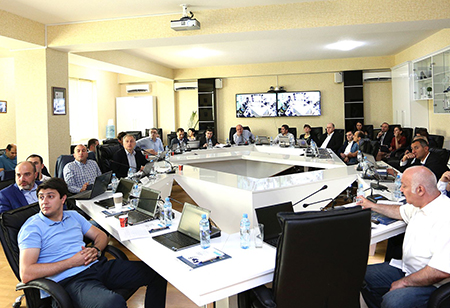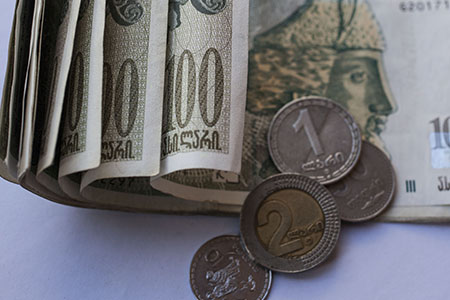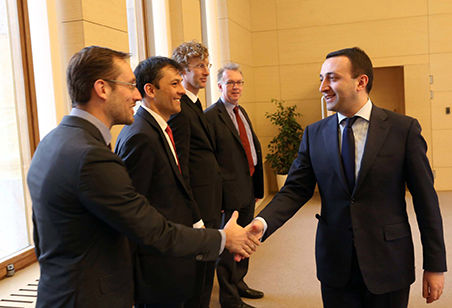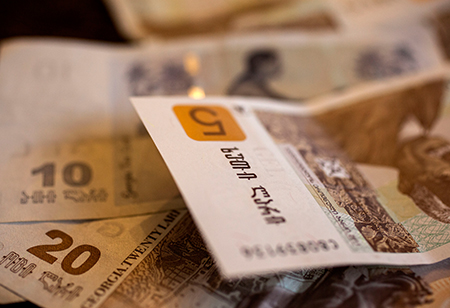Georgian Lari tumbles following collapse of Chinese stock market
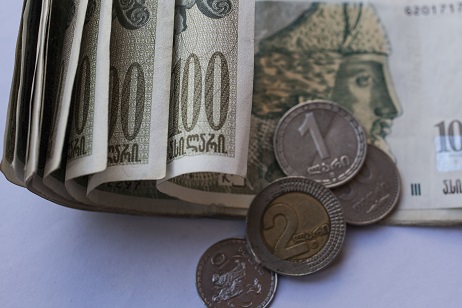
The collapse of the Chinese stock market is having a slight impact on the stability of Georgia’s national currency, the Lari, which is now at a record low against the United States.
The fall of the Chinese economy, which has been a major contributor to economic growth and low global inflation for more than two decades, sent world markets into a spin when the Shanghai Composite – China’s main stock exchange – fell 8.5 percent on Monday, dubbed by media as China’s "Black Monday”.
It was the biggest drop in eight years, since the 2007 global financial crisis. This caused the European and US stock markets to plummet, resulting in the worst day of trading since 2011.
Today the Shanghai Composite dropped a further 7.6 percent.
In Georgia the Lari took a small but sharp decline.
Today 1 USD equalled 2.4161 GEL; the highest rate this year according to a new exchange rate set by the National Bank of Georgia (NBG). In recent days the previous exchange rate was 2.3336 GEL.
The Lari first started dropping in value against the greenback in November 2014. At this time the exchange rate saw 1 USD valued at 1.75 GEL. The Lari’s depreciation reached its highest level back in 1999 when 1 USD equalled 2.4510 GEL.
Georgian Government officials noted there were some speculations about the stability of Georgia’s market following China’s "Black Monday” but were confident the Lari exchange rate would stabilise.
The country’s Minister of Finance Nodar Khaduri declared, due to state budgetary operations, more monetary assistance has been provided to the country than what has already been taken from the budget.
In his words, between January-July 2015 Georgia received $81 million USD more monetary assistance than the state budget paid for credit expenditures. He also added this did not include investment loans Georgia had taken for infrastructural development.
We expect an additional $110 million USD by the end of the year. This means that about $200 million USD will be received by means of budgetary operations. Budgetary expenses are being implemented equally this year. Therefore I think this is temporary; some speculation is of course taking place about the market but the exchange rate will inevitably stabilise. I deeply believe this,” he said.
Khaduri said budget operations would not affect the exchange rate and there was more than 700 million GEL in the NBG treasury account. Furthermore, he also said the Government expected to receive a billion GEL income by the end of the year and the Government would not spend this money and would not pressure the market.
Meanwhile Vice Prime Minister and Minister of Economy Giorgi Kvirikashvili said: "Nothing special was happening with the Lari exchange rate” and he called on everyone to remain "as calm as possible”.
We suppose that yesterday’s developments in the market were only a result of a mild stir and having nothing to do at all with the external events that took place yesterday. By that, I mean the collapse of China’s stock market.
Therefore we think we should be as calm as we can since nothing special happened in our market yesterday. Our macro-economic parameters remain healthy at present and can be simply improved as a result of working diligently,” Kvirikashvili remarked.
The Economy Minister noted at this stage it was more important for the economic team to keep financial stability in the country rather than to increase the economy, so the economic team was ready to revise the budget components.
Georgia’s Prime Minister Irakli Garibashvili also thought there was unnecessary speculation regarding the Georgian market and he called on the business community and society to refrain from panicking and keep calm.
Garibashvili explained that due to the recent reduction in imports, the country saved $332 USD in outflow costs and there were no fundamental problems in Georgia’s export-import balance.
 Tweet
Tweet  Share
Share
